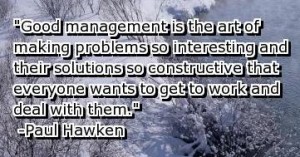Knowing how to find a job after college in today’s economy requires you to do much more than just send out resumes. As even experienced people are accepting lower pay jobs to survive, the college graduates are facing a even larger challenge with limited experience or ways to differentiate themselves.
Recently, I received an email from a Berkeley graduate (David – not his real name) who is can’t find a good job after college. I want to share his story and my recommendations for him in case they can help others.
David’s story and questions
I’m a 23-year-old somewhat recent graduate (2009) from U.C. Berkeley. I have spent the last two years working in various odd jobs and also backpacked through Central and South America. I did this because I didn’t know what I wanted to do and didn’t want to think too hard about a career. I have seen and experienced many things I had been curious about, and have matured. I feel a strong urge, now, to focus and leverage my abilities to develop a career. Unfortunately, I am having a really hard time finding a career opportunity. My questions are:
- I graduated 2 years ago, what is the best way to convincingly distance myself from my past inconsistent work history and assure an employer that I am a serious candidate?
- A good proportion of entry level positions are in sales. I can do sales, but I don’t want to stay in sales. Are these positions worth pursuing to get in the door?
Here are 6 tips to help David find a job. Hope they also help others who can’t find a job quickly after college
- Change your negative mentality and Focus on your strengths – Don’t over-worry if your past experiences are not ideal. Thinking only negatively about your past experience will come across in interviews. You need to change your own mentality about your past if you want others to believe it. Instead, come up with a good story and keep it short. David can try “”The economy was bad so I decided to take 18 months off to travel and mature. Now the economy is recovering, I am ready to work.” Explain it only when asked. Also focus on what strengths you can offer a company – skills, passion, experience, and dedication. Even with David’s situation, there is an upside, he will be more mature than graduates of 2011 and is okay with a new graduate job / pay.
- Network with your “3rd cousin” – I don’t mean this literally but to illustrate a point. Everyone will tell you to network to get a job. What does it really mean? It means three things
1) at every social interaction, you are already at, find opportunities to discuss what people’s jobs are like and/or get advice about how to find a job after college. You never know who will know a good hidden opportunity to share
2) Proactively cold-call alumni, family, friends, and anyone that could have information for you about the nature of their job or job opportunities. Go beyond your comfort zone. College does NOT do a good job of describing all the different jobs available out there. By aggressively networking with anyone you encounter, you could learn about cool jobs you never thought of (e.g., international trade specialist, retailer buyer), hone your skills at networking which is needed in any business career, and uncover hidden job opportunities other graduates won’t know.
3) Networking also includes finding and cold-calling the hiring managers of a job opening and skip the recruiter. When you cold call hiring managers, be prepared with a succinct story of why they should consider interviewing you. Making the effort to reach them directly can help you stand out.
- Work for free to get in the door – This can get you into companies, especially start-ups, that may not have actual job openings. David should especially consider this to show his dedication and focus to a company. Set it up so that you work for 1-3 months for free and then convert to a paid position if you do a good job. This is easier for the company to say yes and let’s face it, you could spend another 3 months or more looking for work if you didn’t do this, it’s worth it to offer this alternative so you get a chance to prove and differentiate yourself.
- Be open to multiple career paths – Define up to five career paths that may interest you and will teach you skills that you can apply to other jobs. This will give you focus without limiting your options. With that said, when you pursue any opportunity in any of the five careers of interest, you need to sound focused on that one career and communicate credible reasons why you want to pursue it. You don’t need to share that you have 4 other careers of interest. To David’s question, is Sales a good career to pursue? In general, yes as a job in Sales can teach a person important soft skills, like interpersonal skills, communication skills, negotiation skills that can be used in many careers. David should find a few Berkeley alumni who are in Sales and do information interviews – find out what they like and dislike about sales and what it takes to be successful. He can use the information to build his application for sales positions and may even uncover a few hidden sales openings from these contacts.
- Show passion for the product/company – Go after careers based on your passion. Many college graduates are not sure what they want to do when they grow up. I was definitely one of them. This is normal. It’s possible to not know your career passion but still have passions for products/services as a consumer. If you love Farmville, apply to Zynga. If you love shopping trends, apply to be a buyer at a retail company. Those who shows they have passion for the product a company offers will stand out in their interviews. See this article of one Stanford MBA who got a job with Foursquare because of his passion for its services.
- Lastly, there are two risky options David can try for his resume – For a good resume template, click here.
Option 1) summarize disjointed experiences into one experience on your resume – In David’s case, his odd jobs in food services, EMT, and factory worker will cause concern. Instead, he can list his last two years as one experience, This is taking some creative license with the resume but if the story is true, it’s your right to market yourself in the best light. For example, David can write the following – David Smith Enterprises – Discovery Analyst (2009 to 2011). Test different headings as there is no best answer. Then he can list underneath it 3 to 5 bullets of how some of his experiences in the last two years help him develop maturity, interpersonal skills, communication skills, appreciation for diversity, etc…
Option 2) skip the last two years all together in the resume and be prepared to explain the gap if he gets an interview.
Neither option in #6 is ideal which is why David and any other graduates who can’t find a job for awhile after college should focus most of their energy on the first 5 tips to find a job.
Job search is your job ... read more



